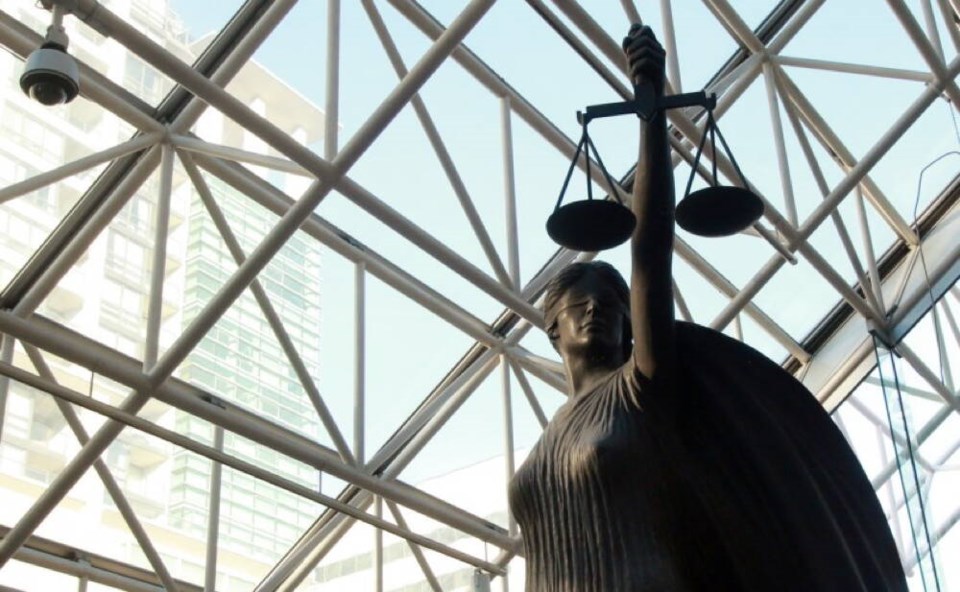–°¿∂ ”∆µ taxpayers are on the hook for $10 million in damages after a court ruled that bureaucrats who rejected an independent power proposal years ago mishandled the file.
The –°¿∂ ”∆µ Supreme Court ruled that officials committed misfeasance — wrongful exercise of authority — in rejecting the multi-million dollar project without having any apparent grounds or authority to do so.
In essence, the wrong officials made the decision for the wrong reasons.
The provincial government rarely loses cases like these and the $10.1 million in damages — while less than what the plaintiff asked for — is considered significant.
Government lawyers contested the case for years and won a stay in 2017, but it was overturned on appeal. Other attempts to get the case dismissed also failed.
Premier David Eby said Tuesday the Attorney General’s Ministry is deciding whether to appeal.
–°¿∂ ”∆µ Hydro last spring announced it will issue the first call for new power projects in 15 years, because demand is much higher than anticipated. The project at the centre of the trial was in response to a similar call made under the previous government, under the –°¿∂ ”∆µ Liberals.
But Eby said the NDP is taking a decidedly different approach than the previous government.
The proponent was notified of the rejection by telephone in 2008, but the government’s stance was at odds with earlier indications. Two key permits Greengen Holdings Ltd. needed for a run of the river hydro project near Squamish that had been in the works for years were rejected.
Greengen claimed that the rejection stemmed not from the reasons stated but “for collateral political purposes related to the province’s relationship with the Squamish Nation and its desire to avoid a lawsuit.”
Justice Kevin Loo essentially agreed. He found that cabinet ministers and senior officials were involved, but the statutory authority to make the calls on the permits rested with two specific bureaucrats.
He said an assistant deputy minister took it upon himself to phone Greengen and deny the permits, even though neither of the two statutory decision makers had independently made those decisions.
He found the official “either made the decision to do this himself, or passed on a decision made by others, that the project would not be allowed to proceed without agreement of the Squamish Nation. This decision was made to appease the Squamish Nation.”
There was evidence the Squamish Nation was initially interested in the project, but over time it strongly opposed it, saying the creek was spiritually significant to their people.
Greengen’s lawyer, Arden Beddoes, said his client, Terry Sonderhoff, takes the decision as vindication.
Exactly who decided to reject the project is not clear from the court case. Justice Loo found the inability to be certain as to who ordered the phone call is partly due to the “effluxion of time and in part it is the result of a fragmented documentary record.”
Beddoes said the plaintiff filed a freedom of information request early on and got back thousands of documents, but they had been “vastly redacted.”
The formal documented rejection came in the form of two letters delivered nine months after the phone call, in 2009. They cited various reasons, including Squamish Nation’s Aboriginal rights.
But Greengen claimed, successfully, that the rejection was made in the earlier phone call and for reasons other than stated in the letters.
Justice Loo said the “entire decision-making process was tainted by the November call … The decisions … were unlawful.”
The phone call also apparently reversed the government’s earlier position. One of the statutory decision-makers wrote in an earlier email: “we are comfortable approving the tenure.”
The government argued the email may have had a typo — he meant to say “not comfortable.” The judge rejected that.
The company said the Squamish had an obligation to explain the impacts to their Aboriginal rights on the creek.
It didn’t meet that obligation “yet the provincial government representatives decided against issuing (permits) because of fear of bad publicity or litigation,” said the court decision.
The –°¿∂ ”∆µ Liberals took some political heat for the number of independent power projects they did approve for multi-decade contracts at above-market rates.
Now we have to pay for one they said no to, for suspect reasons.
>>> To comment on this article, write a letter to the editor: [email protected]




